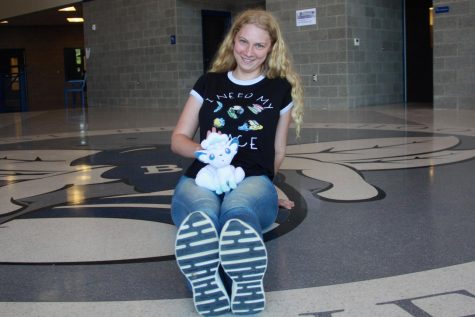Not Like Other Girls
November 22, 2019
You’ve seen it, you’ve heard it: “I’m not like other girls,” “if she breathes, she’s a thot,” girls locker rooms vs. boys locker rooms. The infamous Karens, Stacys and Lindas. “Girls are so much drama,” “girls are petty,” “girls are shallow.”
The memes, starting as jokes, poke at the differences between genders, revealing the flaws we need to work on and providing conversation starters that reveal the similarities between strangers on the Internet.
If you spend thirty minutes reading through comments or searching in posts, you’ll see things starting to slide from lighthearted jokes to misogyny: “Women will cheat on you,” “Women who make false accusations of rape should face jail time,” “Women born after 1993 can’t cook, and all they do is charge their phones, twerk and lie.”
Once, in the anonymity of a comment section, I jokingly said, “if you hate women so much, just date men.” Everyone online assumes I’m a guy, and I like it better than way, lest I receive unwanted attention. The first reply was, “I could never date someone I respected.”
I remember when I was younger, I would scorn makeup and skirts and dresses. I was better than that “stupid stuff,” I was smarter than the girls who’d waste money on them. I wasn’t obsessed with boy bands or the “Office,” I hated pink, I hated emojis and I brought my 3DS to school instead of my phone.
I wasn’t like other girls.
Who were the other girls, in my mind? They were the opposite of me: the fashion-obsessed, makeup-caked, catty things who bullied others and hated the outdoors. They were the ones who were always on Instagram or Snapchat with their pink iPhones in one manicured hand and a Starbucks drink in the other.
I know better now: they don’t exist. Hobbies are fine, and makeup can be fun. Liking pumpkin spice doesn’t make you “basic.” Skirts on anyone can look attractive.
Some of the stereotypes have changed: put the Starbucks drink in a Hydro Flask, add a scrunchie, Tumblr posts and hipster fashion and you’ve got definition of an “art hoe,” according to Urban Dictionary.
I see others, women and men, fall into that misogynistic mindset. It’s self-deprecating to think that other girls look better because they have longer hair or weigh less. Sometimes it’s ”unlike other women, I have morals” or “REAL men don’t cry.” Sometimes it’s “Why do women get offended at catcalls? They’re compliments.”
Sometimes it’s your father telling you that you can’t work at his store anymore because he knows his customers will harass you, because the creepy guy who visited the other day knows your face and work schedule now. Sometimes it’s your mother telling you you have to wear a towel over your one-piece swimsuit when you’re eight years old at Disney World, but you don’t understand what she means when she says “people will look at you,” not until years later, and you feel sick.
And it’s not just those “other girls”–there’s more being wedged into the gap between men and women. The Internet is so useful for getting information, understanding what goes on in other people’s heads but also becoming a massive echochamber of harmful opinions and fake facts.
Guys don’t have some secret leader-follower dynamic in their friend groups or constantly think about sex. Girls don’t always friendzone guys who ask them out or expect their boyfriends to read their minds. When someone is upset, you don’t solve the problem by turning to your friends or your phone and saying “Women, am I right?” or “Why are men like this?”
Just treat each other as humans.
We often discuss the opposite sex as if we were narrators on a nature documentary, as if we are observing another species. We’ve made progress toward gender equality, but we need to be careful with what we say and what we tolerate others saying, lest our hundreds of steps forward start turning into steps back.





